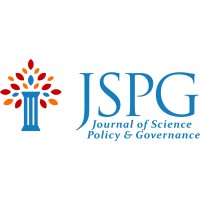
Journal of Science Policy & Governance (JSPG)
The Journal of Science Policy & Governance (JSPG) is a 501-c3 non-profit organization based in the United States and an internationally recognized, open-access, peer-reviewed publication dedicated to elevating students, post-docs, policy fellows and young scholars in science, technology and innovation policy and governance debate worldwide. Since 2011, JSPG has served as a vehicle for students and early career researchers to bolster their research and writing credentials in science policy. Subscribe to our newsletter: http://bit.ly/JSPGNewsletter






